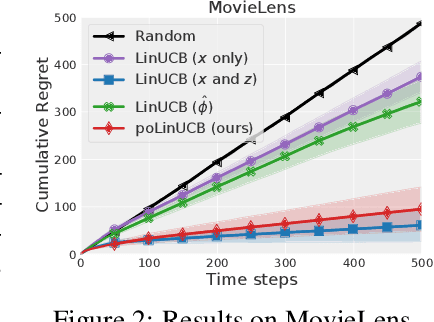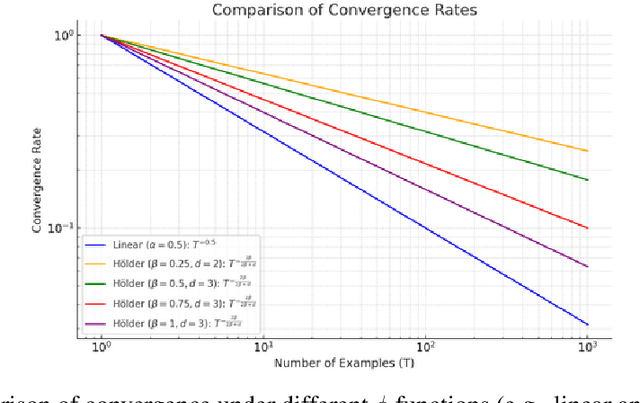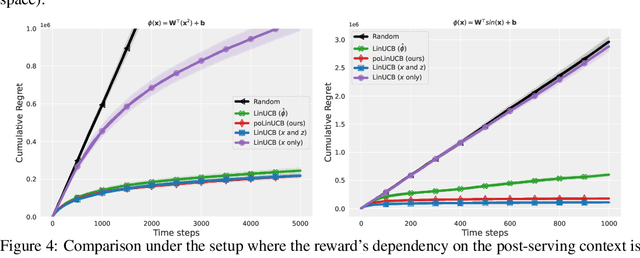Follow-ups Also Matter: Improving Contextual Bandits via Post-serving Contexts
Paper and Code
Sep 25, 2023



Standard contextual bandit problem assumes that all the relevant contexts are observed before the algorithm chooses an arm. This modeling paradigm, while useful, often falls short when dealing with problems in which valuable additional context can be observed after arm selection. For example, content recommendation platforms like Youtube, Instagram, Tiktok also observe valuable follow-up information pertinent to the user's reward after recommendation (e.g., how long the user stayed, what is the user's watch speed, etc.). To improve online learning efficiency in these applications, we study a novel contextual bandit problem with post-serving contexts and design a new algorithm, poLinUCB, that achieves tight regret under standard assumptions. Core to our technical proof is a robustified and generalized version of the well-known Elliptical Potential Lemma (EPL), which can accommodate noise in data. Such robustification is necessary for tackling our problem, and we believe it could also be of general interest. Extensive empirical tests on both synthetic and real-world datasets demonstrate the significant benefit of utilizing post-serving contexts as well as the superior performance of our algorithm over the state-of-the-art approaches.
 Add to Chrome
Add to Chrome Add to Firefox
Add to Firefox Add to Edge
Add to Edge